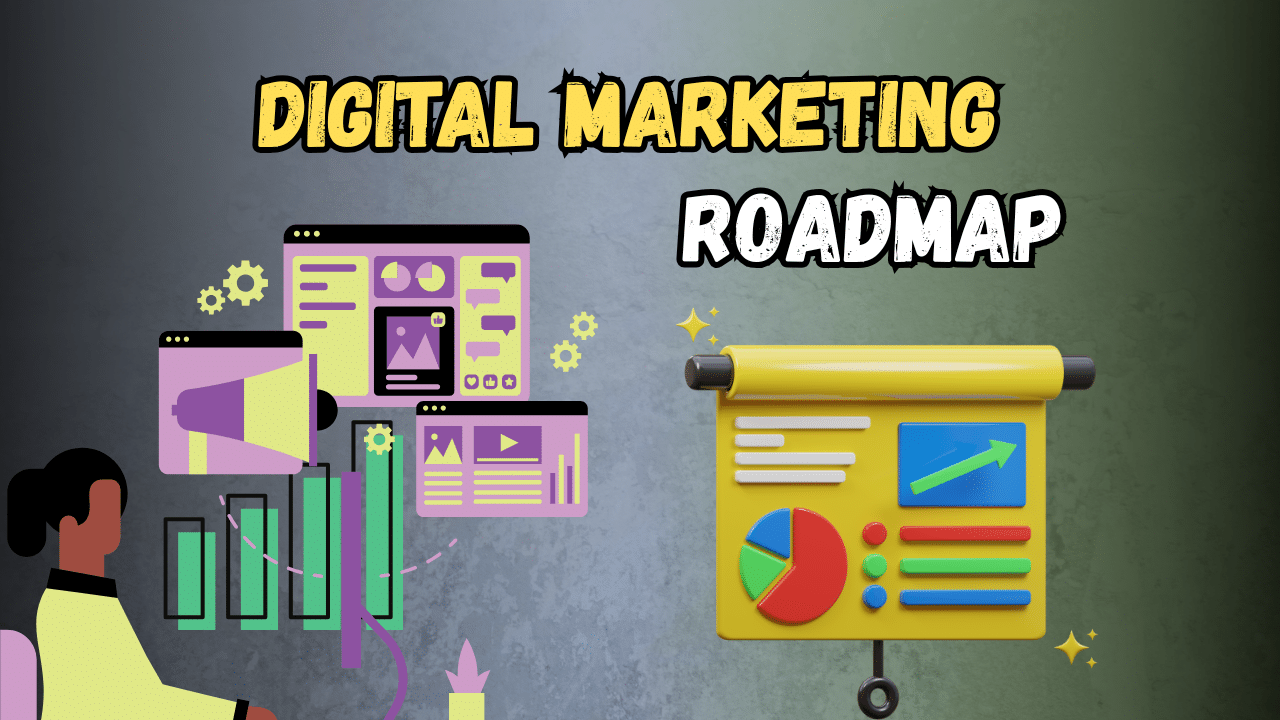Top 5 demanding skills in 2025
As we come close to 2025, the labor market is changing fast, and so are the skills required to succeed in it. Automation, AI, and digitalization are transforming sectors, so it is a must for students and working professionals to future-proof their careers. If you’re just stepping into the job market or wish to shift, here are the top 5 emerging skills you should learn in 2025.
The employment economy and the abilities required to succeed in it are changing quickly as 2025 draws near. Because automation, artificial intelligence, and digitalization are transforming businesses, it is critical that professionals and students prepare for the future. These are the top 5 emerging skills you should study in 2025 whether you’re just starting out in the workforce or want to change careers.
1. Data Literacy
In the era of information, data is the new oil. Startups as well as Fortune 500 companies all make decisions using data. Data literacy is not about how to use Excel; it is about learning to read, understand, and tell stories with data. It is the ability to bring data to actual problems, describe the findings in a relatable manner, and influence decisions.

Why it matters:
- Every business generates and uses data.
- Encourage data-driven decision-making to boost productivity and return on investment.
- Give staff members the freedom to make data-driven suggestions to spur creativity.
Things to discover:
- fundamentals of data analysis with programs like SQL, Google Sheets, and Excel.
- visualization programs such as Looker, Tableau, or Power BI.
- Basic statistics include correlation, standard deviation, mean, median, and mode.
- Presenting data to non-technical audiences is known as data storytelling.
- Useful applications include building dashboards to track company performance.
- Analysis of marketing consumer behavior.
- Operational inefficiency data analysis.
Learning materials:
- Data Analysis and Visualization Coursera courses
- Google Certificate in Data Analytics
- Udemy and LinkedIn Learning tutorials
Job titles:
- Data Analyst
- Business Intelligence Analyst
- Marketing Analyst
- Product Analyst
Industry demand:
With the digital transformation, information is embedded into nearly all occupations. From sales to HR to supply chain, anyone who knows how to read information has an inherent edge. Data literacy also opens the gate to more specialized fields such as machine learning and data science.
Free Youtube Tutorial
2. Artificial Intelligence & Machine Learning
AI and ML are no longer buzzwords—they’re the foundations of innovation across nearly all sectors. From personalized shopping recommendations to autonomous vehicles, AI is at the forefront of efficiency, automation, and insight generation. With businesses competing on smarter solutions, AI and ML expertise are more critical than ever.

Why it matters:
- Triggers real-time automation and decision-making.
- High demand in finance, healthcare, retail and technology sectors.
- Businesses want predictive insights from data.
What to study:
- Programming languages such as Python and R.
- Tools and libraries such as TensorFlow, Keras, PyTorch, and Scikit-learn.
- Key concepts: supervised/unsupervised learning, classification, regression, clustering.
- Model optimization and evaluation methods.
Practical applications:
- Predicting customer churn or product demand.
- Image and speech recognition systems.
- Chatbots and virtual assistants.
- Fraud detection in finance.
Learning resources:
- Andrew Ng’s Machine Learning course (Coursera)
- Fast.ai for hands-on deep learning
- Google AI and TensorFlow Developer Certificate
Job titles:
- Machine Learning Engineer
- Data Scientist
- AI Researcher
- NLP Engineer
Industry demand:
The AI industry is forecasted to grow over \\\\$500 billion by 2025. Companies are recruiting seasoned professionals who have the ability to create and deploy AI models. Having a knack for this skill can propel career growth into innovation and product development leadership teams.
Free Youtube Tutorial
3. Cybersecurity
As technology evolves, so does cyber attack. From ransomware attacks to breaches of data, businesses are being exposed more and more to security threats. Cybersecurity professionals are needed to protect confidential information, maintain customer trust, and ensure business continuity.

Why it’s important:
- Millions in costs can come from one breach.
- Legislation such as GDPR, HIPAA compliance is necessary.
- Working remotely leaves one vulnerable.
What to learn:
- Computer network basics and security standards.
- Cybersecurity principles: CIA (Confidentiality, Integrity, Availability).
- Ethical hacking, penetration testing, malware analysis.
- Security tools: Wireshark, Metasploit, Nessus.
- Certifications: CompTIA Security+, CEH, CISSP.
Practical applications:
- Network monitoring and hardening.
- Vulnerability scanning.
- Employee security hygiene training.
Learning resources:
- Cybrary and TryHackMe
- Coursera: IBM Cybersecurity Analyst
- SANS Institute courses
Job roles:
- Security Analyst
- Ethical Hacker
- Network Security Engineer
- Information Security Officer
Industry demand:
According to Cybersecurity Ventures, by 2025, the world will have 3.5 million unfilled cybersecurity jobs. It is a high-opportunity, high-demand field with massive job stability and potential
Free Youtube Tutorial
4. Digital Marketing
Digital marketing brings businesses together with consumers online. In a digitally dependent world, professionals who know how to engage and convert using online methods are vital. From SEO to PPC, digital marketing is a fast-paced and innovative industry.

Why it’s important:
- Digital presence is vital for business success.
- High ROI for low-cost campaigns.
- Companies require skilled marketers to compete online.
What to learn:
- Search Engine Optimization (SEO) and Search Engine Marketing (SEM).
- Social media: Facebook, Instagram, LinkedIn, Twitter.
- Email marketing software: Mailchimp, Constant Contact.
- Analytics: Google Analytics, Facebook Insights.
- Copywriting and content creation.
Practical applications:
- Paid ad campaign set up.
- Search engine optimization of websites.
- Social media content creation and promotion.
- Brand awareness and engagement setup.
Learning resources:
- Google Digital Garage
- HubSpot Academy
- SEMrush and Moz blogs
Job roles:
- Digital Marketing Specialist
- SEO Analyst
- Content Strategist
- PPC Campaign Manager
Industry demand:
With the growing popularity of e-commerce, influencer marketing, and digital storytelling, digital marketing skills are more in demand than ever before. Freelance and remote career opportunities abound in this line of work.
Free Youtube Tutorial
5. Emotional Intelligence (EQ)
Technical skills may get the job, but EQ will determine how well you’ll collaborate with others, manage stress, and lead. With an increased focus by companies on employee satisfaction, teamwork, and leadership, EQ is becoming a vital competency.

Why it matters:
- Enhances team work and communication.
- Leadership, conflict resolution, and team dynamics depend on it.
- Helps with stress management and adapting to change.
What to study:
- Self-awareness and empathy.
- Active feedback and listening.
- Mindfulness and emotional control.
- Building effective interpersonal relationships.
Practical applications:
- Managing conflict conversations.
- Empathetic team leadership.
- Workplace mental health support.
Learning resources:
- Daniel Goleman’s EQ model
- Harvard Business Review’s emotional intelligence series
- Udemy and Coursera EQ courses
Job roles:
- Team Leader
- HR Manager
- Project Manager
- Organizational Development Specialist
Industry demand:
Employers are putting more value on the recruitment of soft skills along with technical competence. EQ leads to better leadership, office cohesion, and higher employee retention. Emotional intelligence is more necessary than ever with the remote and hybrid work model.
Free Youtube Tutorial:
Conclusion
2025 will demand a new blend of technical competence and emotional intelligence. Upskilling yourself in these skills not only enhances your job prospects but also makes you adaptable in a constantly changing world. If you work in tech, business, or creative fields, these skills are your building blocks for a successful and robust future.
UI/UX Design is also a trending course
If you are really serious about your career: visit site and on notifications







